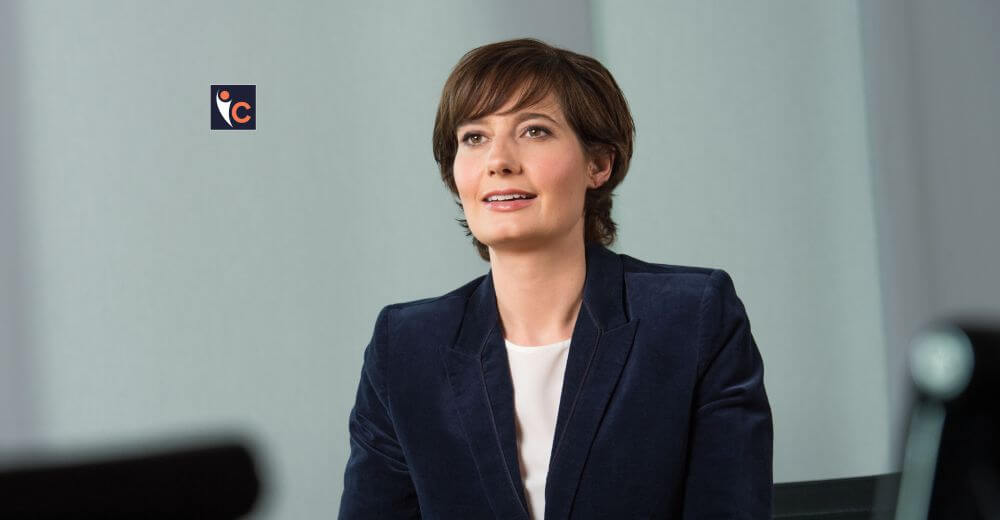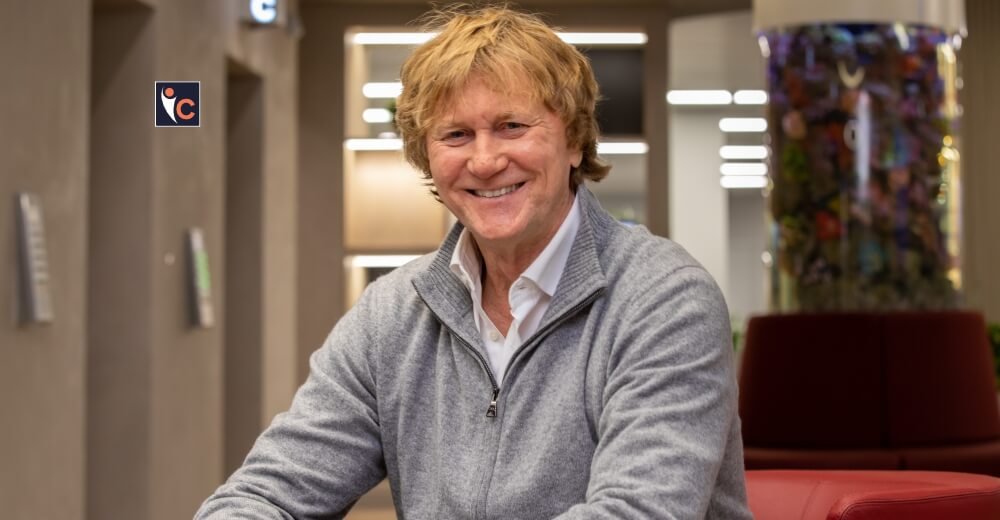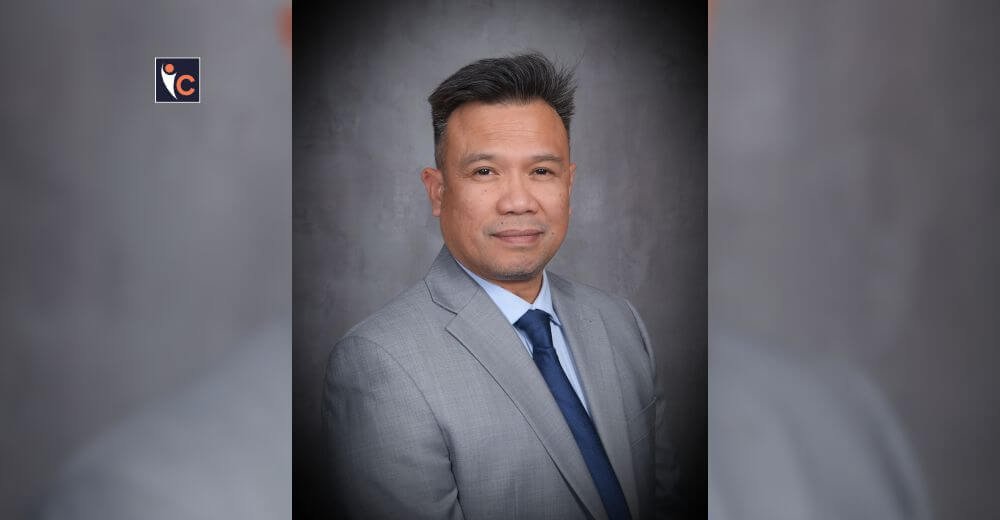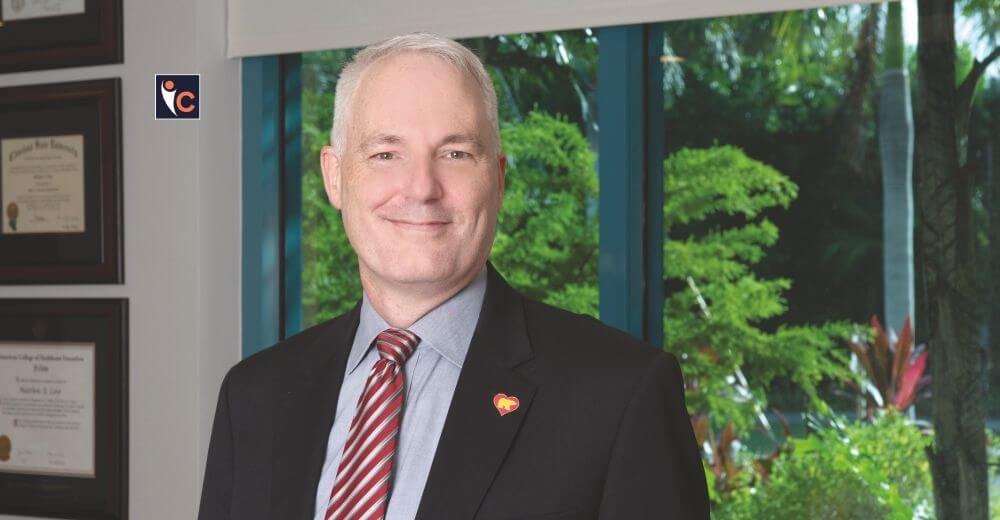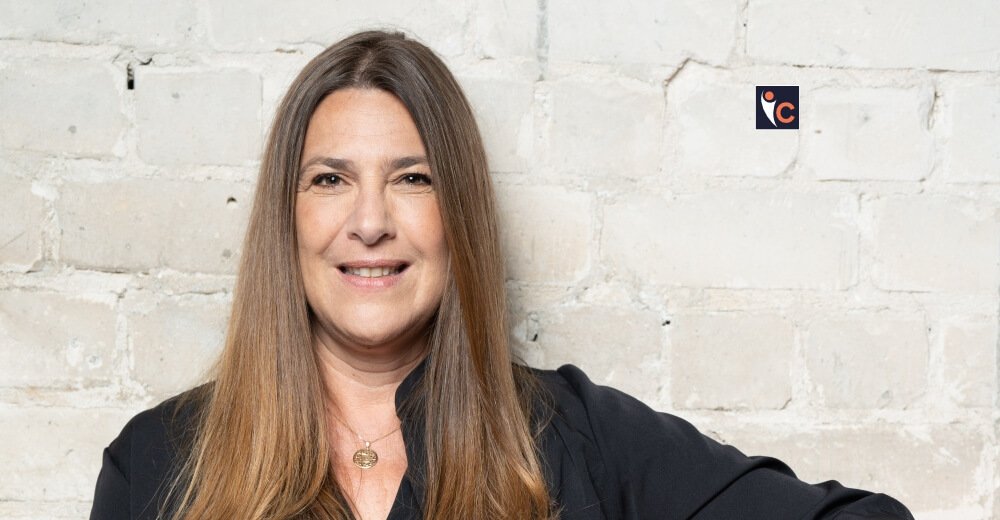Sandrine Piret-Gerard’s life began to be shaped by health and its challenges even before she was born. Six months prior to Sandrine’s birth, her grandmother was diagnosed with colon cancer. Despite the doctors’ estimates that she wouldn’t live long, her grandmother stayed alive until the day Sandrine was born, holding her first grandchild in her arm for a few moments before dying.
This event was formative, shaping her path in life, and ultimately guiding her to join the healthcare and biopharmaceutical industry in 2003, right after receiving her Master’s in Business Administration. Today she serves as Senior Vice President and Head of US Commercial at Gilead Sciences.
Sandrine’s affinity for healthcare shouldn’t be a big surprise. Her grandparents, parents and siblings had already dedicated themselves to careers in healthcare—from physicians to specialty nurses, to midwives. She was subconsciously drawn in that direction and knew she wanted to be part of an industry where she could make a significant difference. She is passionate about transforming patients’ lives, Adding More Life to Years and More Years to Life, so that grandparents, like her grandmother, can spend more quality time with their grandchildren. In Sandrine’s own words “health is about living well, not dying well”.
As a leader overseeing a multi-billion dollar line of business, with a mission focused on helping ensure all those who could benefit from Gilead’s medicines are able to access them, Sandrine strikes the right balance between truly caring for people in an authentic way and holding them accountable to high standards.
Let’s read further to learn about Sandrine’s journey in adding more life to years and more years to life.
Approaching Fatal Diseases Through Transformative Science
Sandrine’s rationale for joining Gilead was threefold: first, Gilead’s legacy and continued demonstration of leading-edge scientific innovation. Second, the organization’s commitment to make their medicines resulting from this innovation available to all wherever they live and whoever they are; and third, the company’s culture in which each employee can make a meaningful impact.
Although several companies claim to have the best pipeline in the industry, Gilead is all about transformative science, which caught Sandrine’s attention from the start. A form of science that goes deeper to address a particular disease until it is solved and can be prevented, far beyond incremental improvements that you often see in the industry.
This has led Gilead to a cure for hepatitis C, to transforming the treatment and prevention of HIV, and to delivering the first antiviral treatment for COVID-19. Gilead strives to cure more viral diseases and even certain cancers and is driven by the ambition to deliver 10 or more transformative medicines by 2030.
From the early days of the HIV epidemic, when people, specifically the LGBTQ+ population, were dying from AIDS, Gilead discovered and developed innovative compounds (14 of them, in fact). This innovative and transformative science has led the way for Gilead to alter the path of what was once a fatal disease to one that can be controlled and prevented.
Research shows, when taken once daily, HIV treatments can lower the amount of virus in a person’s blood to levels that are undetectable and when people get to, and stay, undetectable, the virus cannot be transmitted to another individual through sex. By helping enable individuals with HIV manage the disease to live longer, healthier lives, Gilead has successfully turned a fatal disease into a chronic one, with 74% of the people who are treated for HIV in the U.S. using one of Gilead medicines.
Other Gilead medicines can be taken by individuals who do not have HIV to help reduce their risk of contracting the virus through sex, a prevention strategy known as Pre-Exposure Prophylaxis (PrEP). The innovation story does not stop here. For its next chapter, Gilead is developing a long-acting HIV medicine that could potentially prevent HIV with a single injection every six months. This could help end the HIV epidemic for everyone, everywhere.
Sandrine’s work goes well-beyond simply making innovative drugs accessible and affordable. Through Gilead, she and her team also work toward improving the existing health inequities pervasive in America.
Health Inequity is a Concern in the U.S. and Requires a New Approach
The systemic health inequities which hinder access to care for so many in the U.S. came as a surprise to Sandrine, as this is unlike what she experienced in Europe. She expected that the U.S. healthcare system would make cutting-edge innovation available to all individuals who need it. However, in reality, health disparities are rampant and are often driven by social determinants such as the neighborhood people live in, their housing situation, their financial stability, and their ability to access transportation.
Sandrine believes that Gilead has a unique opportunity to help address these inequities given its role in the healthcare ecosystem. Through her role, Sandrine is helping ensure that a commitment to improving health equity is woven into the fabric of Gilead’s business. Overcoming barriers to equitable access to healthcare – including access to medicines – is far more challenging and complicated than many people recognize. It requires the build-out of solutions for faster diagnosis (through testing) and earlier intervention for those population groups who are at the greatest risk of ill health and poor health outcomes. To truly move the needle and break down the inequities that disadvantage so many in our society, a collaboration between industry, government and communities is required.
For example, Black women have a 40% greater probability of dying of breast cancer than white women in the U.S. This is an appalling statistic, and solving this disparity starts with education and more equitable access to mammograms. Gilead has provided several million dollars in grant funding to U.S. oncology non-profits, including organizations focused on giving support and bridging the health equity gap in states where Black people are disproportionally affected by Triple Negative Breast Cancer.
Together with her team at Gilead Sciences, Sandrine has the ambition to end the hepatitis C and HIV epidemics in U.S.
Seventy percent of people newly infected with hepatitis C are people who inject drugs. If untreated, each newly infected person has the tendency to spread the disease to 20 other people in the subsequent three years. Gilead has a cure for hepatitis C, a once-a-day regimen that you take over 12 weeks. Surprisingly, many patients are not aware or able to take their treatment, while a majority of them are unwilling to take their treatment. Eliminating hepatitis C does therefore require a new approach to raising awareness and meeting people where they are to help treat those most in need. Gilead has made significant investments in testing and linkage to care to support governments around the world, including here in the U.S. One such Gilead initiative is called HepConnect which helps address rising hepatitis C infection rates in Appalachia.
The same is true for HIV where disparities in health equity disproportionally affect the LGTBQ+, Latinx, and Black and Brown communities and, as a consequence, impact outcomes along the HIV care continuum. Gilead supports community organizations that reach these under-represented and disproportionately impacted communities, addressing stigma, discrimination, and other barriers to well-being. Another Gilead endeavour, called the COMPASS initiative seeks to combat HIV in the Southern U.S. This year, Gilead was recognized as the “Single Largest Philanthropic Funder of HIV Causes in The World”.
Innovative medicines and making them accessible are only one aspect of bringing equity to U.S. healthcare. If other foundational barriers to equity, such as stigma and discrimination, are not addressed, those in need will continue to be disadvantaged and distance themselves from helping hands, Gilead.
The stigma around HIV remains. Enabling individuals to tell their own stories makes a difference.
For people living with HIV trying to build a relationship with a partner, it is still a struggle to share their HIV status, even if the disease is undetectable, because of the stigma around the disease.
Destigmatizing the disease is critical to make people who live with HIV feel comfortable in sharing their status. This is why Sandrine’s team has been working with real patients in their promotional campaigns, called Brand Ambassadors. They tell their stories in their own words. These are stories of people who keep being themselves in spite of living with HIV, who thrive and achieve many accomplishments. They help encourage others to come out, without fear and share the news with their community. Living with HIV is not the end of the road, as long as the person is willing to take the necessary measures to stay alive.
Expanding the Gilead reach
At Gilead, people are driven by their purpose of making the world a healthier place for all. They deliver innovative therapies that offer new hope for patients. This means making their therapies broadly available to people living with, or at risk from, life-threatening conditions. It also means going beyond the medicine and helping to address health inequities and other barriers to care.
In 2022, Sandrine and her team at Gilead touched the lives of over 1.8 million people in the U.S. through their medicines. 1.8 million people who have added years to their life and life to their years. The drive and determination that Sandrine brings to her team at Gilead and to the people, patients, and community they serve is built on her experience and compassionate approach.
Sandrine Piret-Gerard, together with her 16,000 Gilead colleagues across the globe, is delivering world-class science and innovation to take on the most devastating diseases of our time. In working with Gilead employees and the communities they serve, Sandrine is expanding access to Gilead’s life-changing therapies and improving health equity to create a healthier world for all people.






